


Specialization:
Clinical and scientific experience:
Membership in associations:
Doctor of Medical Sciences.
Head of the Urogenital Oncology Department at Tel Aviv Medical Center.
Head of Genitourinary Oncology Clalit Health Services.
Research Fellow, Genitourinary Oncology at Johns Hopkins Hospital.
Education:
Head of the Department of Urological Oncology at the Davido Center of the Rabin Hospital.
Specialty: Bladder Cancer, Kidney Cancer, Testicular Cancer and Prostate Cancer.
Dr. Rosenbaum has published over 30 articles in the medical literature and leading journals around the world.
He is a member of the Union of Oncology and the National Committee of Oncourology in Israel and abroad.
Dr. Rosenbaum also leads a large number of clinical trials for prostate, bladder and kidney cancer at Beilinson Hospital, and is a partner in international research.
Dr. Avivit Pir is an Attending Oncologist at the Genitourinary Clinic and Director of Oncology Clinical Research at the Rambam Health Care Campus.
Dr. Peer graduated from the Rappaport School of Medicine at the Technion Israel Institute of Technology and completed her residency in clinical oncology at the Rambam. She trained in the early stages of clinical trials in France and in the field of genitourinary malignancies in the USA.
She teaches clinical oncology at the Rappaport School of Medicine and her main research interests are in the long-term complications of cancer treatment.
Dr. Peer is a member of the Israeli Society of Oncology and Radiation Therapy and the American Society of Clinical Oncology.









Check the cost of treatment and get 20 000 € from international foundation
Get financial help up to 20 000 € for your child treatment
Medical consultant
Turkish oncologist will provide an individual chemotherapy program.
Israeli oncologist will provide an individual chemotherapy program.
Spanish oncologist will provide an individual chemotherapy program.
German oncologist will prepare an individual chemotherapy program.
Polish oncologist will prepare an individual chemotherapy program.
Italian oncologist will prepare an individual chemotherapy program.
Turkish radiologist will prepare a personalized radiation therapy program
Israeli radiologist will draw up an individual radiation therapy program.
German radiologist will draw up an individual radiation therapy program.
Spanish radiologist will draw up an individual radiation therapy program.
Polish radiologist will prepare an individual radiation therapy program.
Italian radiologist will draw up an individual radiation therapy program.
Turkish plastic surgeon will make an individual operation program.
German plastic surgeon will make an individual operation program.
Israeli plastic surgeon will make an individual operation program.
Italian plastic surgeon will make an individual operation program.
Polish plastic surgeon will make an individual operation program.
Spanish plastic surgeon will make an individual operation program.
Turkish orthopedic surgeon will make an individual operation program.
Israeli orthopedic surgeon will make an individual operation program.
German orthopedic surgeon will make an individual operation program.
Italian orthopedic surgeon will make an individual operation program.
Lithuanian orthopedic surgeon will make an individual operation program.
Polish orthopedic surgeon will make an individual operation program.
Ukrainian orthopedic surgeon will make an individual operation program.
Spanish orthopedic surgeon will make an individual operation program.
Turkish neurosurgeon will study the medical situation and give recommendations for treatment.
Israeli neurosurgeon will study the medical situation and give recommendations for treatment.
German neurosurgeon will study the medical situation and give recommendations for treatment.
Italian neurosurgeon will study the medical situation and give recommendations for treatment.
Lithuanian neurosurgeon will study the medical situation and give recommendations for treatment.
Spanish neurosurgeon will study the medical situation and give recommendations for treatment.
Ukrainian neurosurgeon will study the medical situation and give recommendations for treatment.
Turksih doctor will answer your questions
Israeli doctor will answer your questions
German doctor will answer your questions
Italian doctor will answer your questions
Polish doctor will answer your questions
Ukrainian doctor will answer your questions
Spanish doctor will answer your questions
Israeli orthopedic surgeon prepare an individual surgical plan and recomendations
Turkish orthopedic surgeon prepare an individual surgical plan and recomendations
German orthopedic surgeon prepare an individual surgical plan and recomendations
Italian orthopedic surgeon prepare an individual surgical plan and recomendations
Lithuanian orthopedic surgeon prepare an individual surgical plan and recomendations
Polish orthopedic surgeon prepare an individual surgical plan and recomendations
Spanish orthopedic surgeon prepare an individual surgical plan and recomendations
Lithuanian doctor will answer your questions
After examining your situation, doctor will make an individual price offer.
Doctor-consultant will answer all your questions about the cost of treatment, the choice of a doctor and fully organize treatment abroad.

we will contact you within 15 minutes
Israeli oncologists, together with the world’s leading researchers, have reached a complete understanding of the effectiveness of the treatment of bladder cancer (BC). Therefore, Israeli specialists are considered the most in demand for patients around the world who are diagnosed with this disease.
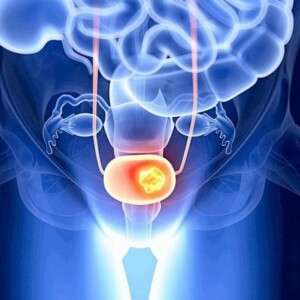 Bladder cancer is an oncological disease, in which the growth of abnormal tissue, a tumor, develops in the mucous membrane of the organ. In some cases, the cancer has spread into the muscle of the bladder.
Bladder cancer is an oncological disease, in which the growth of abnormal tissue, a tumor, develops in the mucous membrane of the organ. In some cases, the cancer has spread into the muscle of the bladder.
According to the degree of spread, the disease is classified according to the following criteria:
In order to carry out effective treatment, the malignancy of bladder cancer is determined in the leading Israeli clinics. For this, tissue samples are examined under a microscope. This information helps doctors determine exactly which therapy would be most appropriate in a particular case.
To draw up an individual plan for the treatment of bladder cancer in Israel, specialists use modern diagnostic methods. Therefore, if patients do not have the opportunity to undergo high-quality examinations at their place of residence, they will be offered the full range of necessary examinations in the hospitals of Tel Aviv, Jerusalem, and Haifa.
 Comprehensive diagnostics may include the following procedures:
Comprehensive diagnostics may include the following procedures:
Modern medical devices make it possible to detect a tumor and make an accurate diagnosis. In the process of treating bladder cancer in Israel and monitoring the postoperative condition, they also help to identify:
Detailed diagnostics allow professors of Israeli clinics to comprehensively solve all problems with the bladder so that the patient can achieve a full recovery.
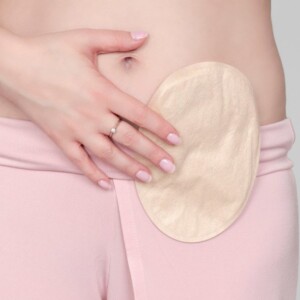 The tactics of treating the disease will depend on the results of the tests, instrumental diagnostics, and the general state of health of the patient. The following options may be considered:
The tactics of treating the disease will depend on the results of the tests, instrumental diagnostics, and the general state of health of the patient. The following options may be considered:
In some cases, people with invasive bladder cancer who do not want to have surgery to remove the organ may try a combination of treatments. This is called trimodal therapy. It combines TUR, chemotherapy, and radiation therapy.
The surgeon performs the TURBT procedure to remove the cancer from the bladder while preserving the organ’s function. After TUR, the patient undergoes a course of chemotherapy along with radiation therapy. For radiation therapy in Israel, the latest generation units are used, which do not damage healthy tissue and do not harm the entire body.
If, after trimodal therapy, the cancer is not completely eliminated or the patient has a recurrence of the disease, the doctor may recommend a radical cystectomy.
Depending on the stage of bladder cancer and the severity of symptoms, doctors use various combinations of treatment for the disease. Surgery is the main treatment for bladder cancer. The type of surgery will depend on where the tumor is and how big it is. In addition to surgery, other types of treatment may be prescribed, including preoperative therapy (neoadjuvant) or adjuvant therapy (to reduce the risk of recurrence).
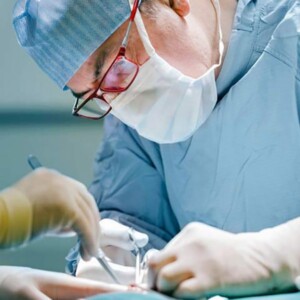 In leading Israeli clinics, doctors perform the following types of interventions:
In leading Israeli clinics, doctors perform the following types of interventions:
During TUR with fulguration, a doctor inserts a cystoscope (a thin, lighted tube) into the bladder through the urethra. An instrument with a small wire loop at the end is used to remove the tumor or cauterize it with high-energy electricity (the fulguration process).
Radical cystectomy is an operation to remove the bladder, lymph nodes, and nearby organs with signs of cancer (metastases). This surgery may be performed when the bladder cancer has grown into the muscle layers or when a non-invasive bladder cancer is affecting a large part of the organ. Wherein:
Whenever possible, Israeli oncosurgeons perform interventions using the Da Vinci robotic system. This is a gentle type of surgery (minimally invasive), but this is possible only for certain indications and is not used universally.
One of the key benefits of treating bladder cancer in Israel is access to innovative medicines. The result of treatment and the well-being of the patient depends on the quality of the drugs. Anti-cancer drugs, which are often prescribed in hospitals in Eastern Europe and Central Asia, cause severe side effects. In Israel, you can get a therapy that will be effective and non-toxic for the body of a patient with oncology.
Non-surgical methods of treating bladder cancer in Israel include:
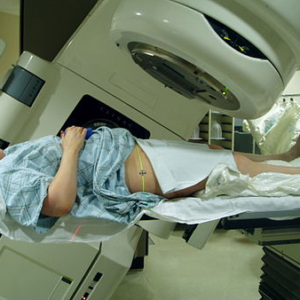 Radiation Therapy
Radiation TherapyRadiation therapy may be used as part of treatment for early-stage bladder cancer or after surgery that does not remove the entire organ (for example TUR). Radiation therapy may be the primary treatment for people with early-stage cancer who are not eligible for surgery or chemotherapy. This therapy is also effective in the treatment of advanced bladder cancer (when the cancer has spread outside the bladder).
Radiation therapy is often given along with chemotherapy to improve the effects of radiation. This is called chemoradiation therapy.
In chemotherapy, drugs that can stop the growth of cancer cells or completely destroy them are used. Chemotherapy can be given alone or in combination with other treatments. How chemotherapy is given (in the form of tablets or injections) depends on the type and stage of treatment for bladder cancer.
Systemic chemotherapy for bladder cancer is the injection of chemotherapy drugs into a vein. With this method of administration, the drugs enter the bloodstream and reach cancer cells throughout the body.
For bladder cancer, chemotherapy may be intravesical, meaning it is given into the bladder through a tube inserted into the urethra. Intravesical treatment flushes the lesion in the organ and kills the remaining cancer cells after the operation. This reduces the likelihood of recurrence of the disease.
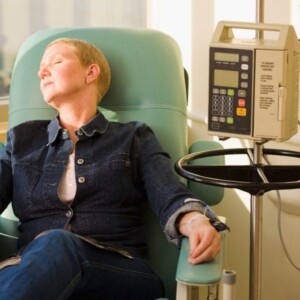 Immunotherapy
ImmunotherapyImmunotherapy helps the human immune system fight cancer. An Israeli oncologist may offer biomarker tests to a patient to pre-determine an individual’s response to certain immunotherapy drugs.
Leading Israeli cancer centers use systemic immunotherapy. Systemic immunotherapy drugs are used to treat urothelial cancer (the tumor can develop at the level of the pyelocaliceal system of the kidney, ureter, bladder, and urethra).
Innovative drugs act not only on the immune system of a person with oncology. They are also considered targeted therapies because they target specific changes or substances in cancer cells.
Special substances to block the action of certain enzymes, proteins, or other molecules involved in the growth and spread of cancer cells are used in the targeted therapy. An oncologist performs biomarker tests on a patient in order to prescribe an effective targeted drug for a specific type of bladder cancer.
BCG (Bacillus Calmette-Guerin) is an intravesical immunotherapy drug used to treat bladder cancer. The BCG vaccine is given directly into the bladder using a catheter (thin tube). This procedure reduces the chance of cancer coming back.
Doctors prescribe the number of courses of this or that therapy individually. During the treatment of bladder cancer in Israel, intermediate monitoring is mandatory. This allows to adjust the tactics of therapy in time.
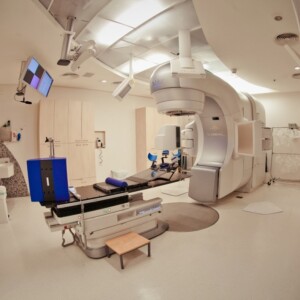 Among the best hospitals that effectively treat bladder cancer in Israel are the following:
Among the best hospitals that effectively treat bladder cancer in Israel are the following:
You can learn about the benefits of these clinics from the coordinators-doctors of Experts Medical. Leave a request on this site and get a free consultation. On the pages of the clinics, you can find reviews about the treatment of bladder cancer in Israel.
Depending on the stage of the cancer being treated, doctors will prescribe one or more courses of drug therapy. The same goes for radiation therapy.
The operation with the help of the Da Vinci robot will cost approximately $20,000. The average price for radiation therapy in Israeli clinics is $10,000 per course. Cancer immunotherapy can cost as much as $60,000.
For comparison, the cost of the same procedures in hospitals in Germany and Italy will be about 30% more expensive with the same quality of medical care.
 Reviews about the treatment of bladder cancer in Israel are most often the following:
Reviews about the treatment of bladder cancer in Israel are most often the following:
Israeli medical centers with which Experts Medical cooperates are medical institutions accredited by world standards. They have distinctions confirming the quality of therapy and service for international patients. Therefore, Experts Medical employees receive only positive feedback about the treatment of bladder cancer in Israel from those people who chose to go to this country.
Contacting Experts Medical specialists will allow to quickly find a suitable doctor and clinic in Israel. The coordinator doctor of the company will send your medical documents to the clinic and help with booking tickets for the desired date.
Each patient who travels to Israel for bladder cancer treatment will receive informational support from a specialist of Experts Medical at all stages until returning home.